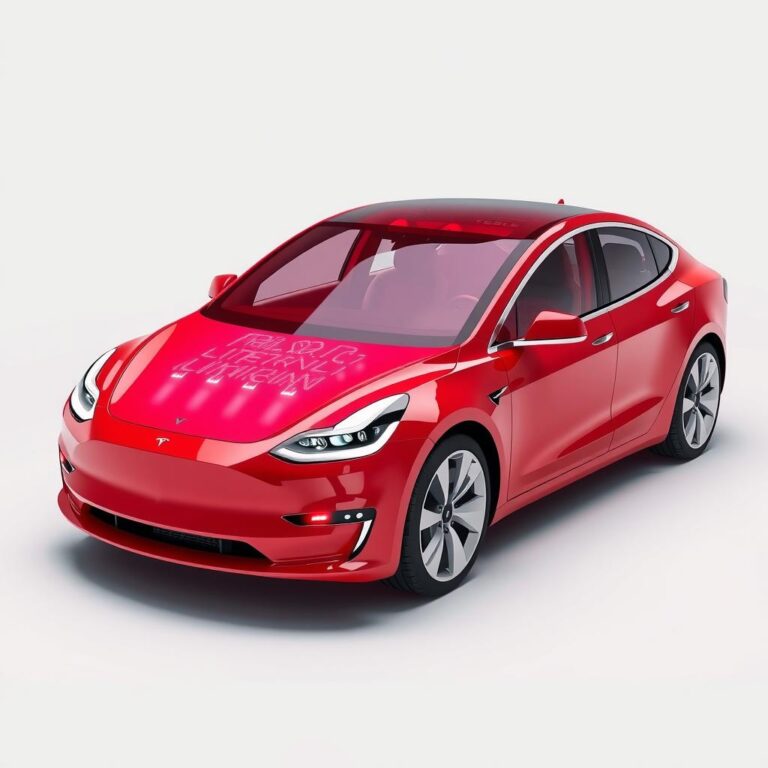Can A Tesla Car Be Hacked?
Can a Tesla car be hacked? That’s a real concern for many Tesla owners.
With Teslas being some of the most advanced and connected cars on the road, cybersecurity is a hot topic. Can hackers take control of your Tesla? Can they unlock your car, mess with the software, or even drive it remotely?
The Short Answer: Yes, But It’s Very Difficult
Like any device connected to the internet, Teslas are not 100% hack-proof. However, hacking a Tesla is extremely difficult due to the company’s strong cybersecurity measures.
Over the years, ethical hackers have found vulnerabilities in Tesla’s system—but Tesla has been quick to fix them.
How Secure Are Teslas?
Teslas are among the most secure vehicles in the industry when it comes to cybersecurity.
Here’s why:
- End-to-End Encryption: Tesla’s systems use encryption to protect data.
- Regular Software Updates: Tesla frequently patches security flaws.
- Bug Bounty Program: Tesla pays ethical hackers to find vulnerabilities.
- Two-Factor Authentication: Protects the Tesla mobile app from unauthorized access.
While these protections make hacking difficult, no system is completely immune.
Has a Tesla Ever Been Hacked?
Yes, but mostly by ethical hackers in controlled environments.
1. 2016 – Hackers Remotely Controlled a Model S
- Researchers from Keen Security Lab found a way to control a Tesla remotely.
- They could unlock doors, adjust mirrors, and activate the brakes.
- Tesla patched the issue within days.
2. 2020 – Bluetooth Hack
- A cybersecurity researcher found a way to unlock a Tesla using Bluetooth vulnerabilities.
- The exploit only worked under specific conditions.
- Tesla quickly fixed the problem.
3. 2022 – Tesla Model 3 & Y Key Fob Hack
- Researchers found a way to intercept Tesla’s key fob signal.
- They could steal and replicate the signal to unlock the car.
- Tesla added additional encryption to prevent this.
These examples show that while vulnerabilities exist, Tesla actively works to fix them quickly.
How Could a Tesla Be Hacked?
While Tesla’s security is strong, here are some possible attack methods:
1. Remote Software Exploits
- If hackers find a flaw in Tesla’s software, they could exploit it remotely.
- However, Tesla’s regular updates make this difficult.
2. Key Fob or Phone Spoofing
- Hackers could intercept Bluetooth or key fob signals.
- This requires close physical proximity to the vehicle.
3. Tesla App Hijacking
- If someone gains access to your Tesla app, they could control the car.
- This is why two-factor authentication (2FA) is important.
4. Charging Station Hacks
- Some researchers have demonstrated ways to tamper with Tesla chargers.
- This could allow hackers to slow charging or manipulate billing.
How to Protect Your Tesla from Hackers
While Tesla’s security is strong, you can take extra steps to stay safe.
1. Enable Two-Factor Authentication
- Go to your Tesla app settings and enable 2FA.
- This prevents unauthorized access to your Tesla account.
2. Keep Your Software Updated
- Always install the latest Tesla software updates.
- Updates fix security vulnerabilities.
3. Use a Strong Tesla Account Password
- Avoid weak passwords like “123456” or “password”.
- Use a mix of uppercase, lowercase, numbers, and symbols.
4. Avoid Unsecured Public Wi-Fi
- Hackers can intercept data on unsecured networks.
- Never log into your Tesla account on public Wi-Fi.
5. Keep Your Key Fob Safe
- Use a Faraday pouch to block signal interception.
- Disable Passive Entry in settings if you don’t use it.
FAQs About Tesla Hacking
Can someone hack into my Tesla while I’m driving?
Extremely unlikely. Tesla’s systems are encrypted and regularly updated to prevent remote takeovers.
Has Tesla ever been hacked?
Yes, but mostly by ethical hackers in controlled environments. Tesla has always patched vulnerabilities quickly.
Can hackers steal a Tesla?
Some researchers have demonstrated key fob spoofing, but Tesla has strengthened its security to prevent this.
Can my Tesla be hacked through public charging stations?
Theoretically, it’s possible, but no real-world cases have been reported.
What should I do if I suspect my Tesla account is hacked?
Immediately change your password, enable two-factor authentication, and contact Tesla support.
The Verdict: Can a Tesla Be Hacked?
Yes, but it’s highly unlikely.
Tesla cars are among the most secure vehicles on the road. While hacking attempts have been demonstrated, Tesla is constantly improving its cybersecurity.
By following best practices—like enabling 2FA, using strong passwords, and keeping software updated—you can keep your Tesla safe from hackers.

Can Tesla’s Autopilot Be Hacked?
Tesla’s Autopilot and Full Self-Driving (FSD) system rely on advanced AI and cameras. But can hackers manipulate it?
1. Spoofing Road Signs
- Researchers have tricked Tesla’s Autopilot by placing fake road signs.
- Example: A small sticker on a speed limit sign could cause the car to misread it.
2. GPS Spoofing
- In theory, hackers could trick a Tesla’s navigation system into thinking it’s somewhere else.
- This type of attack is rare and highly complex.
3. LiDAR and Radar Attacks
- Since Teslas rely on cameras, blinding them with lasers or reflections could cause temporary confusion.
- However, Tesla’s AI is constantly improving to recognize these tricks.
While these threats exist in research labs, real-world hacking of Autopilot remains extremely difficult.
Does Tesla Pay Hackers to Find Security Flaws?
Yes! Tesla runs a Bug Bounty Program, rewarding security researchers who find vulnerabilities.
How It Works:
- Ethical hackers report security flaws to Tesla.
- Tesla verifies the issue and issues a fix.
- Hackers get paid for their discoveries.
This proactive approach helps Tesla stay ahead of potential threats.
Could Someone Hack a Tesla to Unlock It?
Theoretically, yes, but Tesla has strong protections:
- Key fob encryption makes signal theft difficult.
- Bluetooth phone key requires proximity.
- Pin-to-Drive prevents unauthorized driving.
Unless a hacker has physical access to the car and the owner’s login details, breaking into a Tesla is very hard.
What If Hackers Gain Access to Tesla’s Servers?
Since Tesla cars connect to the internet, some people worry about large-scale hacking.
How Tesla Protects Its Servers:
- Data encryption prevents interception.
- Regular security audits check for weaknesses.
- Strict access controls prevent unauthorized entry.
So far, no large-scale Tesla server breaches have occurred.
Future of Tesla Cybersecurity
Tesla is constantly improving its cybersecurity. Future updates may include:
- Even stronger encryption for wireless connections.
- More AI-driven security monitoring.
- Additional biometric authentication (fingerprint or facial recognition).
As cyber threats evolve, Tesla is staying ahead of the curve.
FAQs About Tesla Hacking
Can someone hack into my Tesla while I’m driving?
Extremely unlikely. Tesla’s systems are encrypted and regularly updated to prevent remote takeovers.
Has Tesla ever been hacked?
Yes, but mostly by ethical hackers in controlled environments. Tesla has always patched vulnerabilities quickly.
Can hackers steal a Tesla?
Some researchers have demonstrated key fob spoofing, but Tesla has strengthened its security to prevent this.
Can my Tesla be hacked through public charging stations?
Theoretically, it’s possible, but no real-world cases have been reported.
What should I do if I suspect my Tesla account is hacked?
Immediately change your password, enable two-factor authentication, and contact Tesla support.
The Verdict: Can a Tesla Be Hacked?
Yes, but it’s highly unlikely.
Tesla cars are among the most secure vehicles on the road. While hacking attempts have been demonstrated, Tesla is constantly improving its cybersecurity.
By following best practices—like enabling 2FA, using strong passwords, and keeping software updated—you can keep your Tesla safe from hackers.

